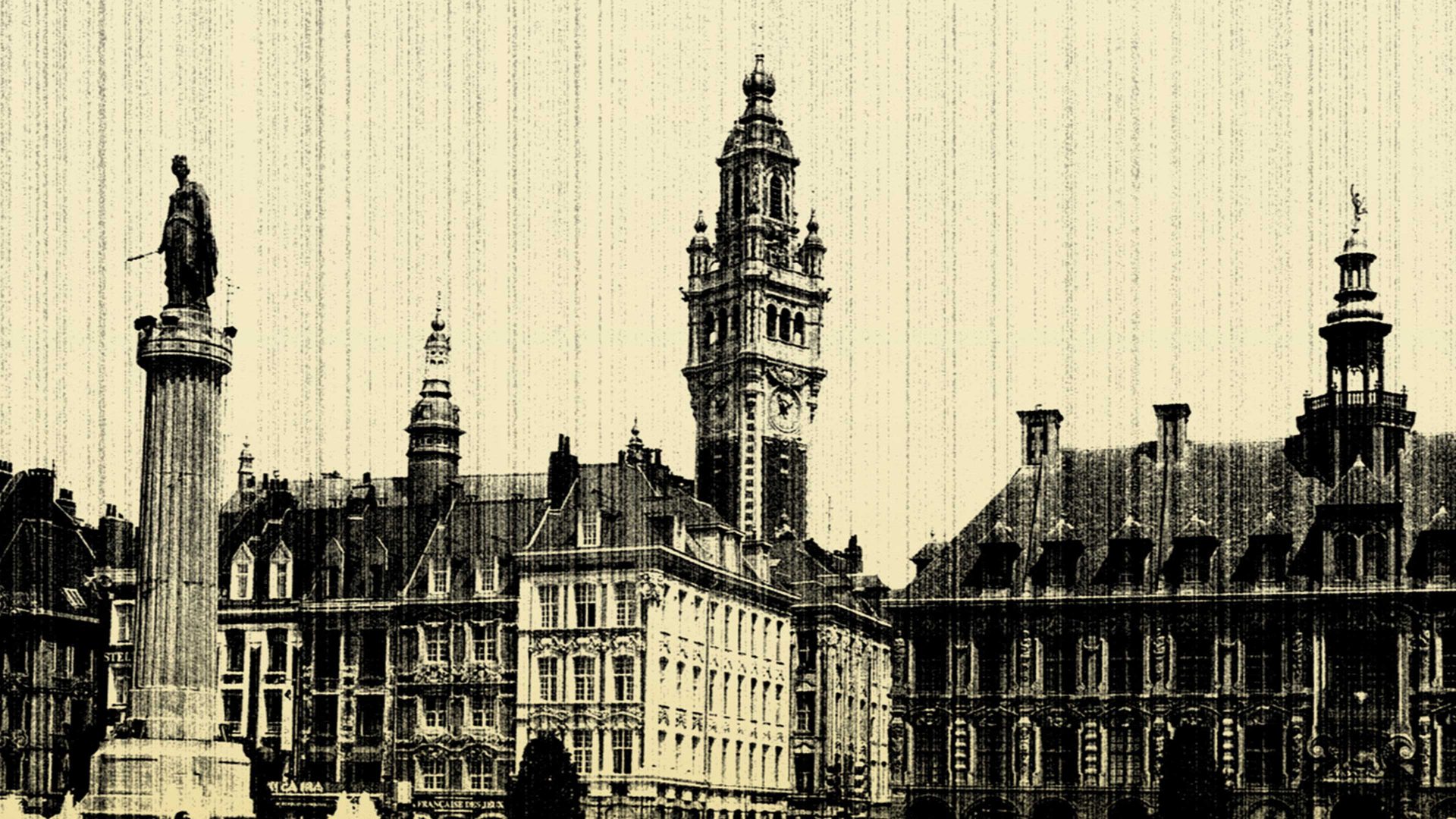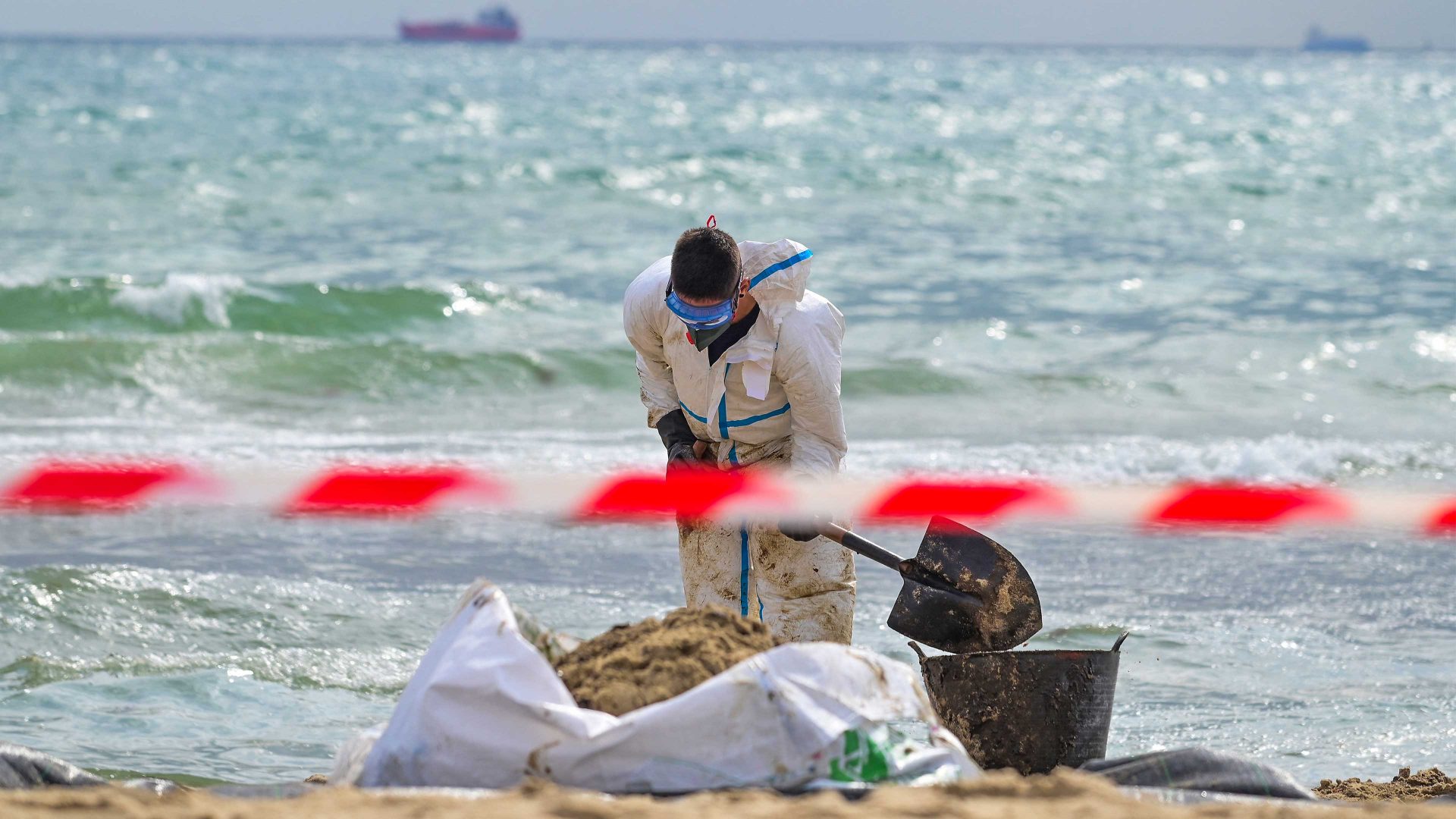Serhiy Zhadan is a Nobel prize nominee, a poet, a rock star, a soldier and now a pirate radio host.
The singer, who last year toured the UK with his band Zhadan and the Dogs, ditched his trademark leather jacket for military fatigues in April, joining Ukraine’s national guard. But now one of the country’s most famous writers is adding information warfare to his repertoire – leading a band of merry ‘pirates’ in a radio van around Ukraine’s vast, and very dangerous, eastern territories.
The project kicked off this week with a transmission from the northeastern city of Kharkiv, which has been under almost continuous heavy bombardment. The city of 1.4 million people is often in total blackout, as Russian strikes have left power stations in ruins.
“Our travelling radio appears out of nowhere and disappears into nowhere,” said Ivanna Skyba-Yakubova, executive director of Radio Khartia – its title a homage to the ‘Khartia’ brigade of the national guard with which Zhadan serves, who have protected Kharkiv city since the very first day of the invasion. Information is everything in Ukraine’s battle against Russia, and communication masts have often been targets – so the team know they could be targeted too.
A permanent broadcast location, or even a regular schedule, would attract Russian attention, in the form of a cruise missile or a gliding bomb. Being mobile is safer – though they can’t put out an analogue signal, as it would be picked up and attacked instantly. For now, they use online platforms to get their programmes out.
It’s not just for safety reasons that they decided on a mobile radio van. Being on the ground, finding guests and stories from frontline areas, is key, Skyba-Yakubova explained – and if it gets too dangerous, they can pack up and leave in minutes. It’s a rationale that teams of TV journalists covering the war would be very familiar with: you have to be where the stories are, but you also need to get out quickly when necessary.
But Radio Khartia sits in the hazy area between journalism and activism, civilian and military. The minivan-radio-station is independent, working with but not owned by the brigade.
“We see the gap between people with different experiences widening,” Zhadan explained. “How difficult it is to return to civilian life for veterans, or for people who left [as refugees] to come home, where reality is already so different. For residents of threatened cities, returning to their usual life is difficult. And we want to help bridge these gaps.”
Ukraine’s great strength is the way society came together to fight off the Russian invasion, but after 11 years of war, the cracks are showing: the experience of a soldier who’s barely had a single rotation out of the trenches in all that time is a million miles away from someone who left the country to seek safety, or someone living in relative safety hundreds of miles from the fighting.
So let’s bring all these people together, thought Zhadan, to learn from each other – with his small team in a converted minivan as the conduit. “Sincere conversations, a common language… this is mutual support radio,” he said.
Radio Khartia is Ukraine’s first-ever mobile broadcaster. There will be reports, diaries, songs and ‘kitchen table chats’, alongside the more serious conversations about life-saving first aid techniques and frontline situations – some of these in podcast form.
The Khartia brigade began as a volunteer group, the idea of a Kharkiv businessman and other civic activists, but has since been brought under the National Guard structure, becoming its 13th brigade. The name means ‘charter’ in Ukrainian, a nod to the Magna Carta, to principles of fundamental rights and a democratic society, which is what so many Ukrainians say they are fighting for.
They know, too, what they are fighting against: Russian ‘barbarism’, the Russian colonialism and violence that has trampled over this land too many times. In a nod to this history, Radio Khartia describe themselves as “Pirates of the Wild Fields” – the vast steppe that covers not just Donbas, but north to Kharkiv and down to southeastern Ukraine, once sparsely populated by Zaporizhian Cossacks; a place Russia tried to ‘tame’.
For Ukrainians, this history has become a potent inspiration, proof that they have always been different to Russia: a free people, inclined to democracy and not serfdom. Their eastern and southern territories, this ‘wild’ frontier, is the bulwark against Russia and everything it stands for – so must be defended at all costs.
“Good news from the Wild Fields” will be Radio Khartia’s main broadcast – defiantly framing eastern Ukraine as a place others can learn from, take inspiration from. It’s a region that many in the west of the country will never have visited, before war perhaps dragged them there as volunteers or soldiers. A place that deserves a nuanced understanding – and this is what Zhadan and his team aim to provide, with their rough-and-ready, from-the-ground broadcasts.
“It’s about a deeper connection with reality, with our land, with small cities” of that region, Zhadan said. “We’ll come to people, rather than waiting for them to come to us.”



